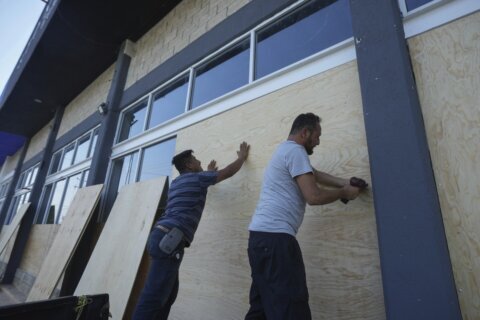First impressions are important — and they can make the difference between whether you receive a job offer or a rejection letter. Here are seven things that many hiring managers and recruiters notice first about you during the interview process.
[READ: 8 Workplace Trends to Eye for 2024]
1. Your Qualifications
Before deciding to interview you, someone from human resources or the hiring team will likely review your qualifications on your resume, cover letter and social media profiles. If you impress the hiring team enough with your job application materials and land an interview, be prepared to explain your skills and accomplishments verbally in a Zoom meeting or in person. It’s important to make sure that your qualifications are front and center.
To put your best foot forward, listen carefully to the question being asked. “No need to ramble on about an event from years ago if it is not relevant,” said Niki Yarnot, head of career assessment at coaching firm Wanderlust Careers, in an email. “Think about how to infuse information into your responses that will infer confidence in your fit for the role, willingness to learn and work with the team, and a genuine interest in the work.”
2. Your Enthusiasm
Enthusiasm is a candidate’s “X factor” that can help them stand out in a positive way, said Daniel Meursing, CEO and founder of Premier Staff in Los Angeles, in an email. He said interviewers tend to notice this positive attitude above all else.
“It’s that intangible quality that separates the good candidates from the great ones — that spark of passion and excitement that shows you’re truly invested in the opportunity,” Meursing said. “I’ve interviewed countless candidates over the years, and the ones that stand out in my memory are the ones who brought a level of energy and enthusiasm to the conversation that was simply infectious.”
Enthusiasm isn’t about being the loudest the most talkative, he added. Instead, it’s about showing that you’re genuinely excited about the company, role and opportunity to make a difference.
“I once interviewed a candidate for a senior sales position who had all the right qualifications on paper,” he explained. “But what set him apart was his enthusiasm for our company and our mission … And that passion and enthusiasm shone through in every aspect of the interview, from his body language to his communication style.”
[READ: Common Job Interview Questions and How to Answer Them.]
3. Your Preparedness
Going hand in hand with enthusiasm is preparedness. That means any competitive job candidate should come into an interview with a basic understanding of the organization’s mission as well as ready responses for the most common interview questions. “When it comes to making a great first impression in an interview, few things are as important as preparedness,” Meursing said.
This should go beyond having a polished resume and a list of references, according to Meursing. “I’m talking about doing your homework on the company and the role you’re interviewing for. I’m talking about having thoughtful questions prepared that show you’re genuinely interested in the opportunity. I’m talking about being able to articulate your strengths and weaknesses in a way that’s both honest and strategic,” he said.
4. Your Communication Style
Voice, tone and speaking pace are all critical components of your communication speaking style, according to Stephen Greet, CEO and co-founder of BeamJobs. “From the initial greeting and introduction, an interviewer begins listening closely to vocal qualities that can leave either a positive or negative first impression,” Greet said in an email. “Speaking too quickly or slowly can make it challenging for the interviewer to fully comprehend the candidate’s responses.”
Speaking in a fast pace may signal to your interviewers that you’re nervous, while an overly slow pace can suggest that you lack preparation or confidence, Greet explained. Similarly, he believes that speaking at a low volume forces the interviewer to strain to hear. Also be wary of how often you fall back on filler words such as “um” and “like,” which lack professional polish and can be distracting for the listener. “These verbal tics undermine the substance of the candidate’s responses,” Greet said.
5. Your Body Language
The hiring team will also take note of your body language. Aim to look comfortable, but not too relaxed. Keep a natural posture, don’t cross your arms and avoid fidgeting.
“When hiring manager walks out to greet you, you don’t want to be hunched over or slouching in a chair,” Yarnot said. “Look attentive. Try to look calm (clasping hands together or holding a notebook is a great way to hide nerves) and happy to be there. Make eye contact when introducing yourself; offer a firm handshake and a smile.”
6. Your Attire
Your interview outfit should in some ways reflect the culture of the company. But if employees dress casually, it’s still important to dress professionally for your interview. If you’re unsure what’s appropriate, consider calling the office’s front desk beforehand to learn what the office dress code is, then plan to dress a step up.
Your attire should be clean, pressed and professional, according to Meursing. “This doesn’t necessarily mean you need to wear a suit … but it does mean that you should put some thought and effort into your appearance,” he said.
The key, he believes, is to strike a balance. “Dress in a way that shows you’re serious about the opportunity, but also let your personality shine through. And if you’re unsure about the dress code, don’t be afraid to ask the recruiter or hiring manager for guidance,” he said.
[READ: 6 Workplace Trends to Be Thankful for This Year]
7. Your Arrival Time
Arriving late to an interview is a serious misstep, but showing up too early could rattle your interviewer as well. If you show up five to 10 minutes before the appointed time, you’ll hit the sweet spot. Meursing suggested putting yourself in the role of the interviewer to understand the effect of a candidate’s lateness.
“Picture this: You’re waiting in the lobby for a job candidate to arrive for their interview. The minutes tick by, and still no sign of them. Finally, they burst through the door, flustered and apologetic. What’s your first impression?” he asked. “For me, arrival time is one of the first things I notice about a job candidate. It’s not just about being punctual. It’s about demonstrating respect for the interviewer’s time and showing that you’re reliable.”
Think of demonstrating reliability as your job during the interview — it will help convince the team that you’re the type of person they want to hire.
More from U.S. News
9 Ways to Be an Incredibly Likable Interviewee
10 Communication Skills for Your Resume
How to Determine What Salary to Ask For
7 Things Interviewers Notice First originally appeared on usnews.com
Update 07/02/24: This story was published at an earlier date and has been updated with new information.







